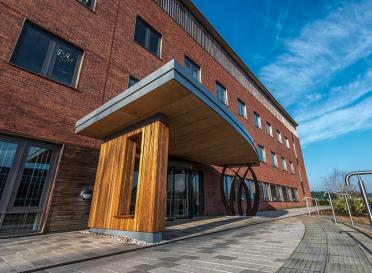
Neil Hall, Director of Earlham Institute said ‘This strategic funding is vitally important to Earlham Institute. We work at the interface of biology, maths and computer science and strategic funding from BBSRC enables us to hire and retain some of the brightest young scientists with interdisciplinary skills. These skills are needed to carry out important foundational research, enabling the institute to grow this relatively new area of bioscience. In addition, this funding also means that datasets, methodology and tools developed by EI will continue to underpin biological research in the UK and internationally. We will now align our operational plan to this new strategic investment. This strategic funding will help the Institute to continue its research into organisms that are of importance to agriculture, food security, biotechnology and health as delivered through the strategic programme ‘From Genomes to Food Security”.
Federica Di Palma, Director of Science, stated ‘’Our research program will take advantage of the latest technology in genomics and computer science to understand how living systems evolve and adapt to their environment. We will be working across kingdoms from plants and fish to microbes to address key areas of food production and food safety.”
This new funding will also support further collaboration between institutes, with the ‘Designing Future Wheat’ program seeing Earlham Institute working with the John Innes Centre, Rothamsted Research, EMBL-EBI, and other UK universities to combine expertise on understanding this complex genome.
Sarah Cossey, Director of Operations at Earlham Institute said “Cutting-edge genomics and computational technologies, along with one of the largest computing hardware facilities dedicated to life science research in Europe, underpin the operations at Earlham Institute. The investment from BBSRC will support the delivery of national capabilities in genomics and single cell analysis, a plant and microbe DNA foundry, e-Infrastructure, and advanced training."
“BBSRC’s strategic funding investments in research, people and vital national capabilities at world leading bioscience institutes will deliver new knowledge and innovation and help realise the potential of a bio-based economy,” said Professor Melanie Welham, BBSRC Chief Executive. “The positive impacts in food, agriculture, energy, materials and health will help drive economic growth and deliver benefits to society across the UK and beyond.”
Ends